Tell me a bit about yourself, your business and the services you offer?
I feel very fortunate to have grown up on a working farm in County Tyrone. I attribute my love of animals and nature to that time…. Although, farming also taught me, hard work, dedication, and patience, topped with a little luck. A lesson which has served me well in all aspects of my career to date.
Over the years I seem to be the perpetual student, which does keep me busy. I completed a Master’s degree in Chemistry with the University of St Andrews in 2011, after which I spent some time travelling and working, before coming home. I then got back into the horse scene here, keeping my own horses at the home farm. The need to understand and provide the best care for my animals led to my enrolment with the Royal (Dick) School of Veterinary Studies – University of Edinburgh on their Post graduate Equine Science Course.
I now combine the lessons, education and experiences I have, to provide independent, unbiased, nutritional advice in all areas including, clinical, performance and reproduction nutrition for horses. Equine welfare is at the heart of all my work and I would encourage people to visit my website for information on what I can offer, at www.cl-equinenutritionist.com .
When doing consultations, I always begin by reviewing the horses lifestyle, work load and individual requirements and if possible utilise forage as the basis of my ration calculations. This approach is welfare orientated, practical, cost effective, and often provides the majority of the horses nutritional requirements. As I am an independent consultant, I then can utilise any feed, supplement or range that suits your horses additional needs, whilst working within the owners budget, creating a plan which is manageable for long term use. Often people forget how much energy and nutritional value forage has, and whilst we have a great range of feeds, supplements and horse products, it can also be confusing to balance or determine what the actual requirements of your horse are.
Each of my clients receives confidential advice and access to follow up care, which is tailored to the needs of their horse. Recently, I have been doing more presentations, educating and guiding others to be able to make the best informed nutritional decisions for their horses, through understanding how the horses digestive system work and so ensure the health and wellbeing of their horses.
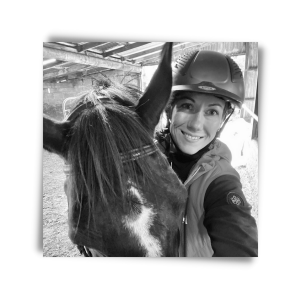
How did you get your qualification?
In 2007 I ventured across to Scotland and completed a Master’s degree in Chemistry with the University of St Andrews. My natural inclination was on analytical biochemistry and physical chemistry, which led (with a little hard work and luck) to research with the National Research Council Canada. When I eventually did come home, I joined the Department of Agriculture, Environment and Rural Affairs, in a scientific capacity, with various roles ranging from, managing the microbiology laboratory to coordinating various research and monitoring programmes.
In 2018 I added the formal equine aspect to my education, with the Royal (Dick) School of Veterinary Studies – University of Edinburgh and their Post graduate Equine Science Course which I completed last year. This programme, provided by an international centre of veterinary excellence, involved an in-depth scientific approach to managing health and welfare, reproduction, behaviour, nutrition and exercise for horses.
My chemistry and previous career made equine nutrition the obvious area to specialise in and, as a glutton for punishment, I made the decision to complete a research project and gain a second MSc, which I’ll hopefully finalise in the next few months. It is looking at human behaviours for choosing equine joint supplements and a comprehensive review of equine joint supplements against proven peer reviewed research.
I would like to take this opportunity to thank everyone in the horse community and all the equine related organisations for their support in completing the survey, the response rate was phenomenal, with substantial statistical data provided for my research.

Is there a governing body or affiliation that recognises professional Equine Nutritionists. How is the standard in your line of work maintained within the industry?
This is an excellent question! Unfortunately at present, there is no regulation of the title ‘nutritionist’ for human or animal practitioners. This means, in theory anyone can call themselves a nutritionist, so before taking advice from anyone claiming to be one, I would advise readers to ask for their qualifications and experience.
Personally, my Master’s degree in Chemistry is accredited by the Royal Society of Chemistry and the Royal (Dick) School of Veterinary Studies – University of Edinburgh where I am completing my second Master’s degree is accredited by the American Veterinary Medical Association Council on Education and The Royal College of Veterinary Surgeons, so I have affiliations and standards of professionalism and conduct on both sides to adhere to.
I am also in the process of joining the UK Voluntary Register of Nutritionists (UKVRN), which is governed by the Association for Nutrition (AfN). They have developed a standard of ethics, conduct and performance for nutritionists registered with them and are working towards a Royal Charter, which would result in registrants earning the title ‘Chartered Nutritionists’. This would provide a list of educated professionals, accountable to a regulator and a set of standards, which I believe would undoubtedly benefit the equine community.
How did you get involved in this line of business?
It was when I returned home that I also rekindled my passion for horses, joining the amateur eventer sector within the supportive Eventing Ireland community and my local riding club. I also took over responsibility for our resident geriatric delinquent pony, Midge. Midge had been residing on some bog land after suffering from laminitis, on the advice of my grandparents. I recall this because I learned another valuable life lesson, don’t discount the experience of your elders! Perhaps they don’t know the science but there is a wealth of knowledge that comes from experience, in this case, right back to when they had working horses on the farm.
I’ve always over utilised the question ‘why?’, and with the responsibility of maintaining the geriatric delinquent and planning the training, conditioning and competition programme of my eventer, I realised, in order to provide and care for a pony with specific clinical needs and another with performance requirements, I had to understand and plan their diets accordingly. So I did what I had spent my career doing, I began reading and researching, which led to my post graduate diploma.
Whilst I began the post graduate diploma for personal reasons, to ensure the welfare of my own horses through understanding their nutritional requirements, I realised that many other owners are faced with similar conundrums, and so, with the support and encouragement of friends and family, have embarked on this business venture, offering owners independent equine nutrition. I believe that practical advice, which has the horse’s welfare as my only priority, can help horse owners around Ireland.

What are some of the challenges you face in business?
To be honest the biggest challenge I faced in starting a new business didn’t involve, keeping abreast of the latest research, my clients or their horses! My biggest issue has been insurance. It would appear no one in Ireland has been insured as an independent equine nutritionist! Which whilst great for my business plan potential, proved problematic for finding appropriate insurance. In the UK there are a number of providers but due to a certain ongoing political issue, starting with B and ending in ‘exit’, it was challenging to find someone willing to provide coverage in both jurisdictions. Thankfully I have sourced insurance and now am insured to work globally! This was a really important issue to resolve for me, I had to be able to safeguard my clients and provide the appropriate insurance for their and my needs.
Do you believe there is enough education and information available to horse owners about nutrition? How can we improve this?
On this question I’m an optimist. I believe there is education and information available….. I’m walking proof you can find it if you take the time to look and work for it.
Also, I was really impressed from my survey, the number of respondents who not only had experience of working in the equine industry, but had some form of formal qualification was so encouraging. This was often a BSc in an equine field, HSI or BHS qualification. It isn’t necessary to go to the lengths I have to find good foundational knowledge on horse welfare and husbandry practice. There are so many routes to learn about horses now, with free courses available from some education institutes, pony club, riding club, affiliated organisations and of course access to the internet.
What I think we need to improve on, is the quality of the information. It is important to be able to discern good science, based information and sources. We live in an era where information is abundant but horse owners need to be able to differentiate between quality information and the not so quality. I would recommend looking to trusted establishments first, both for in person advice and help and also as a source of online information. When reading information online, it is useful to review also authors, their credentials and any potential conflicts of interest, when searching for information.
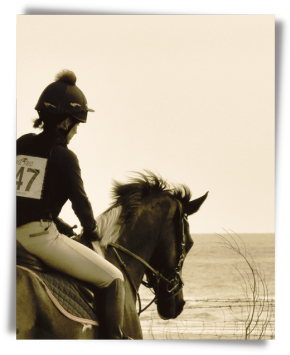
I would like to get your views on Gastric Ulcers. They are so common in horses in training. Why do you think this is and is there anything we, as horse owners can do to combat this issue?
It is difficult to know just how many horses suffer or have suffered from gastric ulcers. Estimates range from up to 93% in horses in the racing industry, to, around 60% for other performance horses. This large variance is because, whilst some affected horses can exhibit, poor performance, behaviour changes, dull coats, or decreased appetites, these clinical signs may also indicate other conditions, such as intestinal parasitism and dental disease. It is also possible for horses to exhibit subtle to no clinical indications, making it very difficult to get an accurate picture of occurrence.
There are in fact two types of gastric ulcers and the only definitive way to diagnose either is by gastroscopy. This also allows your veterinarian to grade ulcers and note where the stomach ulcers are located, in the squamous area or the glandular area.
Squamous ulcers (ESGD) are the most common, and are found in the upper part of the stomach, where there is unprotected stomach lining, which is vulnerable to erosion by stomach acid. Risk factors for ESGD are pretty common and include:
Therefore in addition to treatment with medication via your veterinarian, nutritional and husbandry management is a big part of managing and preventing the condition. I would recommend the following mitigating measures, which all owners can easily do:
There are so many supplements available on the market. It can be difficult to choose what is best for your horse, clever marketing can often make a product look more attractive to the consumer. What are your tips on choosing the correct supplements?
The global equine supplement market is worth millions and expected to continue growing for the foreseeable future (Transparency Market, 2020). I agree that despite the growth and consumer demand, it can be difficult to choose the correct one and even if you try to use research to choose, there is often limited, or conflicting, advice on equine supplements.
A couple of useful points on supplements marketing, within the European Union (EU) and UK including post EU exit, products and producers must adhere to guidelines originating from EC Regulations, but also general regulations, such as specified by the British Codes of Advertising and Sales Promotion. Some of the requirements include:
This last point is very important because this means supplements are classified as animal feed products and do not undergo the same clinical testing and trials as medicinal drugs. They cannot therefore make any medicinal claims, such as, diagnosing, treating, curing or preventing any disease, nor contain certain ingredients, which would see them fall under medicinal regulations with the associated safety and efficacy scrutiny such as under the Veterinary Medicines Regulations (VMR) in the UK.
There are plenty of supplements on the market that do conform to these regulations and often go above the legal requirements. Personally I would prefer to use these supplements, which have integrity, transparency, and scientific research. If in doubt ask your veterinarian or independent nutritionist!
However, I would caveat this with, I also believe that before turning to supplements, owners should ensure a balanced diet, using forage as the basis of any nutritional plan. With adequate, high quality forage, often I find that owners can provide a nutritionally balanced diet, with limited or minimal need for supplication, saving time, money and being more beneficial for their horses in the long run.
What the most common mistakes people make when it comes to feeding horses? Are you seeing the same mistakes being made over and over?
I wouldn’t call it a mistake, more a consequence of our environment but issues that are related to high volumes of sugar and starch are common. These can present as obesity, gastric ulcers, equine metabolic syndrome or laminitis, to name but a few. I say this is a product of our environment because most of the agricultural grazing land in Ireland and Northern Ireland has been developed and modified to provide high yields of beef and milk in cattle farming. This means a relatively high sugar and starch content in forages, which, especially with native breeds and ponies can cause a host of problems, like the ones I mentioned.
This often does result in an increased importance in monitoring the amount of sugar and starch in concentrates, especially as forage analysis is underutilised in horse owners. It can become relatively easy to overwhelm the horses digestive system with the addition of concentrates on top of a high starch forage. Knowing the nutrient, sugar and starch quality of your forage is really important, for so many reasons, it is the predominant energy and nutrient source of a horses diet and instrumental in managing a host of clinical issues.
What are your plans for your business in 2023 and what are some of your aspirations and goals?
More of the same! If I can continue as I have started out I will be so pleased. I am working on improving my business acumen, aka social media presence, which is not my strong point and also I am knee deep in statistics and writing up my MSc thesis on joint supplements.
To start my own business was never something I thought I was capable of. It is daunting and extremely hard work, I have invested years of my time and money in learning, so to be able to help owners and their horses is beyond fulfilling.
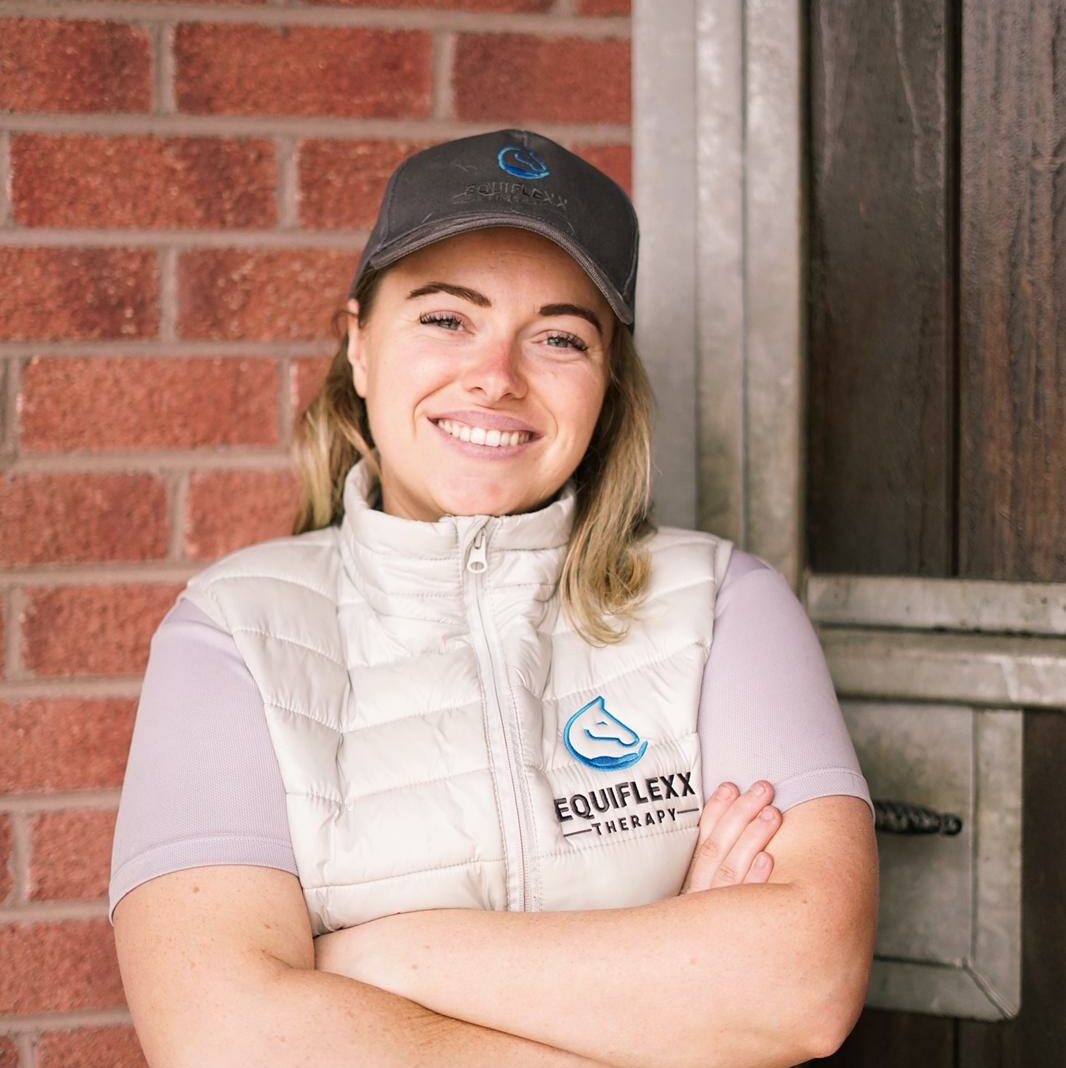

Share
Your subscription is 100% Free for our first year, No credit card details required.

The Judging Concerns That Keep Coming Back — And Why They Can’t Be Ignored Anymore We didn’t make it to
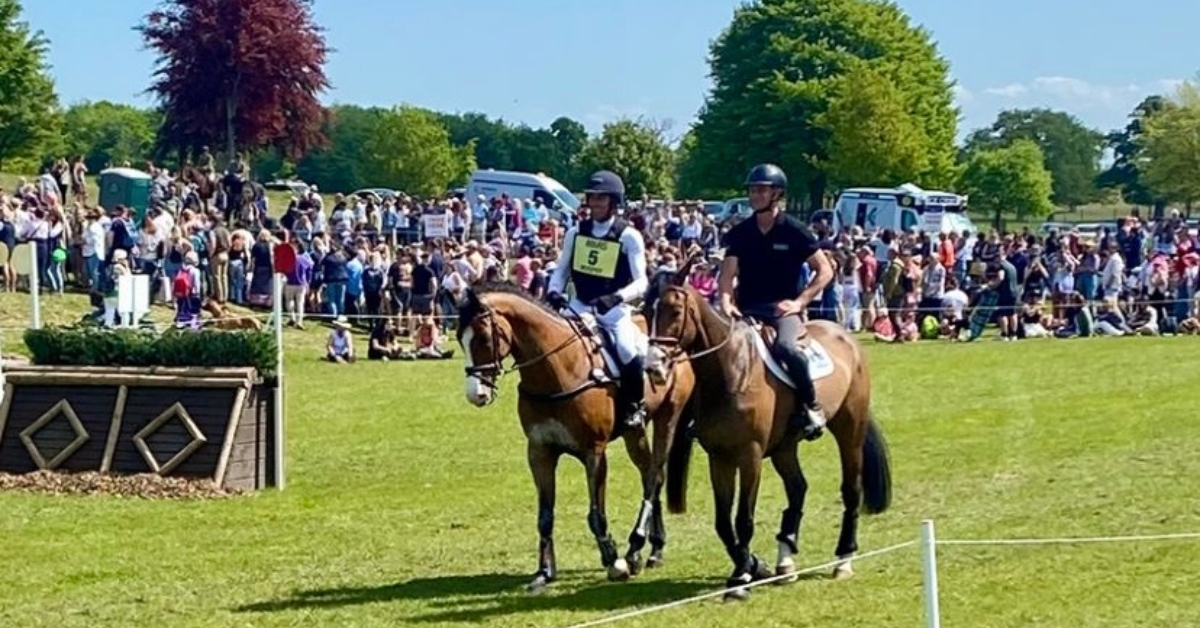
There are few sporting events that live up to the hype. Wimbledon? Too many strawberries. Cheltenham? Too many suits. But
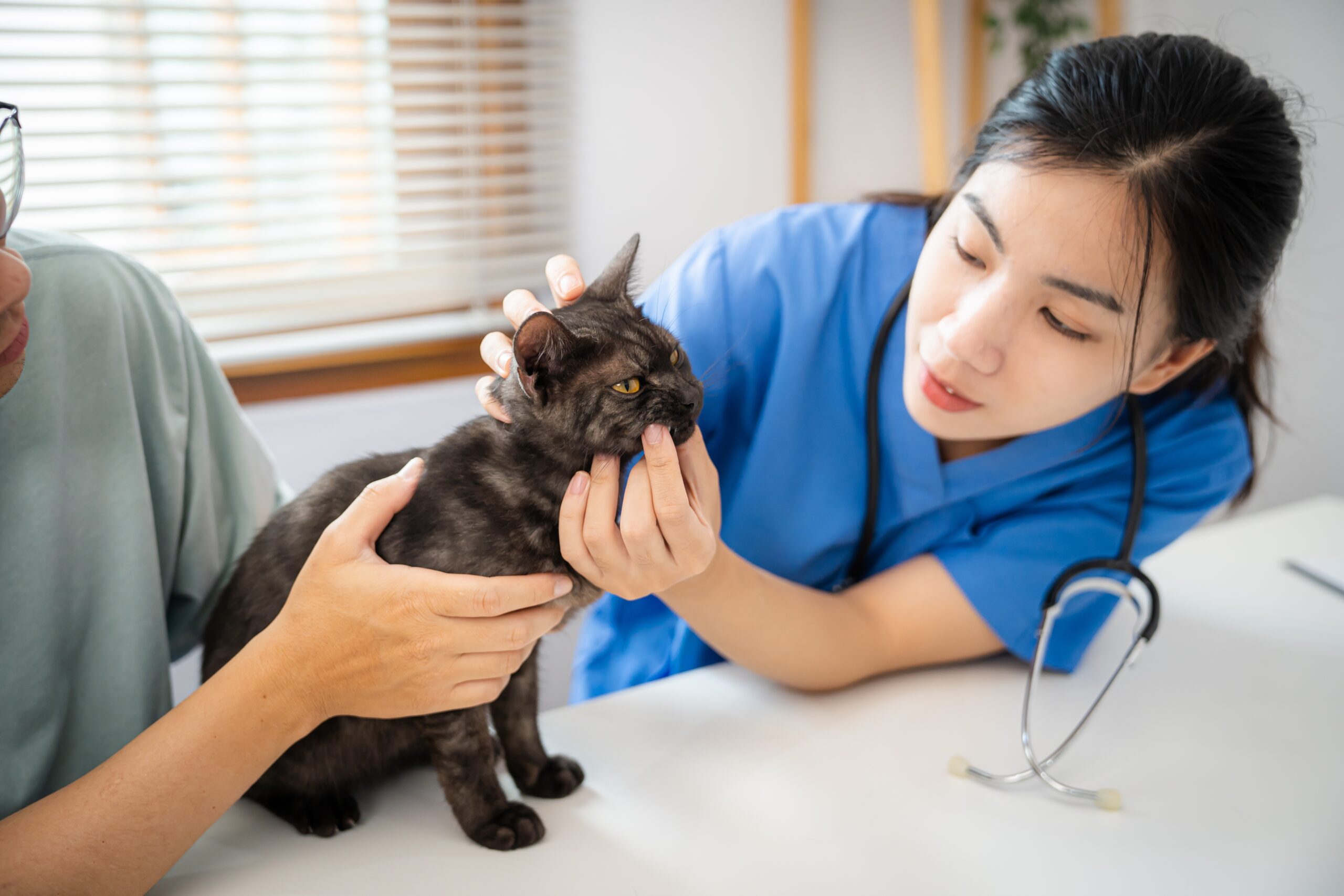
British Veterinary Association publishes full response to Competition and Markets Authority’s proposed remedies for veterinary market for household pets. The